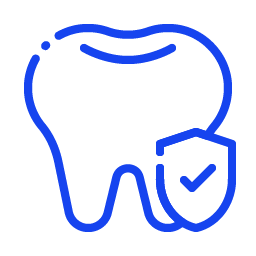Our Services


Frequently Asked Question
An estimated 33% of all people in Dominica have sickle cell disease, making it the most common single-gene genetic disease in this country.
Anemia, or low blood levels, occurs in all forms of sickle cell disease. Some children may only have mild anemia, but others will have severe anemia. The anemia can cause a child to feel fatigued or tired, and can affect physical and mental growth as well. The most common and well known complication is pain crisis. Pain crises occur when sickle cells block blood flow to a portion of a bone, and they can require visits to the sickle cell clinic, emergency room or even require admission to the hospital for treatment. Additionally, patients can develop a variety of problems with virtually all organs of the body as they get older. It is important to be aware that sickle cell disease is a chronic condition and, like high blood pressure or diabetes, can cause ongoing damage to the body even when the patient does not feel ill.
Usually the first treatment approach is to prescribe an antibiotic called penicillin. Taking penicillin twice daily for at least the first 5 years of life has been shown to significantly reduce serious infections and death in young children with severe forms of sickle cell disease. Immunizations are also important to prevent infections.
Blood transfusions can be used to treat certain types of sickle cell disease complications. Additionally, a small number of children may require blood transfusion monthly to prevent stroke.
Hydroxyurea (a medication taken by mouth) has been proven to reduce painful crises, acute chest syndrome (a pneumonia-like lung complication), need for transfusion, and hospitalizations in children and adults with sickle cell disease. It has also been shown to prolong life and improve the quality of life in adult patients.
Bone marrow transplantation, also called stem cell transplant, is the only curative therapy for sickle cell disease. This therapy has significant risks and should be carefully balanced with the benefit to an individual patient. The most successful transplants come from a matched (full) sibling, limiting the number of patients eligible for transplant.
Currently, there is a lot of amazing research taking place around the world to understand this disease better and to develop additional treatments. The success of hydroxyurea therapy has greatly improved the quality of life for many people with sickle cell disease. Hydroxyurea therapy is the first medication taken by mouth that actually reduces the number of sickle cells in the body. This reduces the number of complications the patient experiences. Children with the severe forms of sickle cell disease are at risk of suffering a stroke in early childhood. Annual screening by head ultrasound for stroke risk and preventive treatment of those at highest risk has significantly reduced the number of children who suffer a stroke. In the past, patients with sickle cell disease would often have worsening health as they got older and would frequently die at an early age. With improved care from early childhood, we are beginning to significantly improve both the overall life span and the quality of life for patients with this condition. There are now active studies looking at ways to prevent and treat heart, lung, and kidney problems in sickle cell disease. Researchers are also developing and testing new medications to prevent sickling and shorten the duration of sickle cell pain crises. The development of gene therapy and of more effective bone marrow transplantation procedures offers real hope for cures for sickle cell disease in the near future.
Sickle Cell Cares Foundation was started in 2012 by our founder, who herself is a sickle cell champion. She is driven to empower persons with sickle cell all over Dominica
Contact us at info@sicklecellcares.org
Become The Next Our Happy Client




